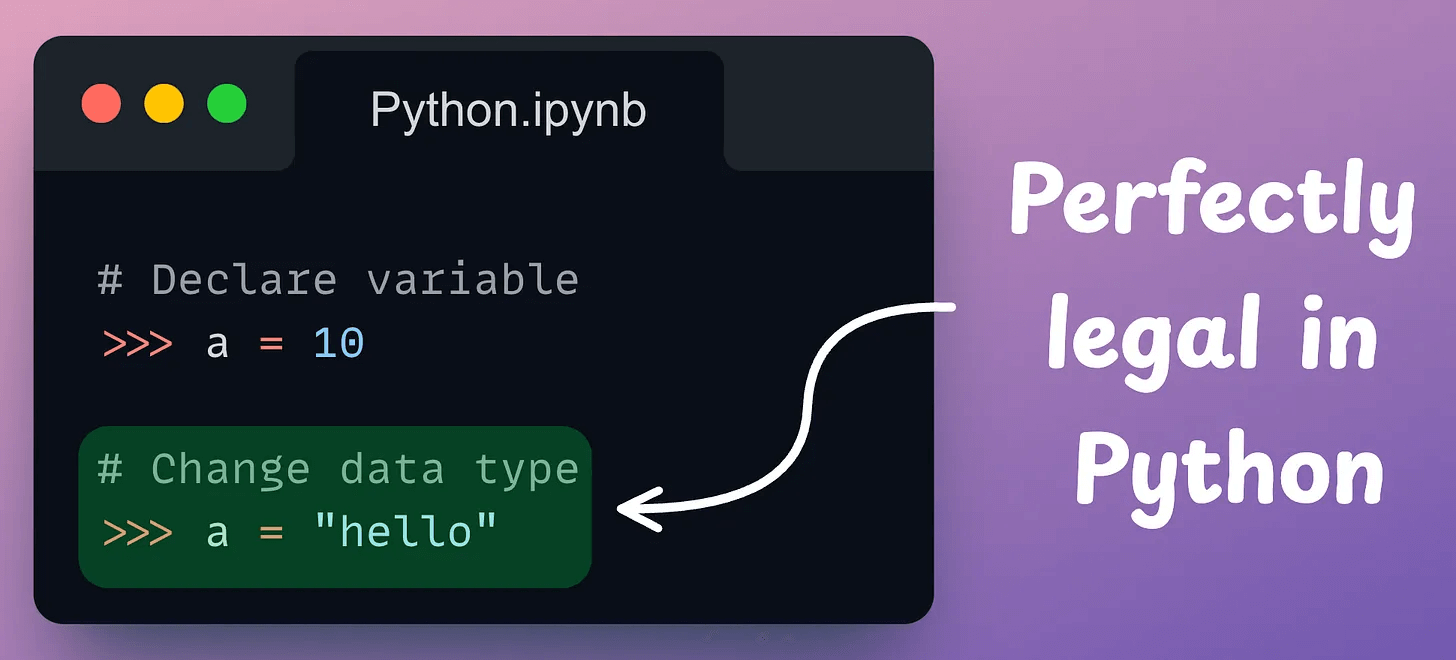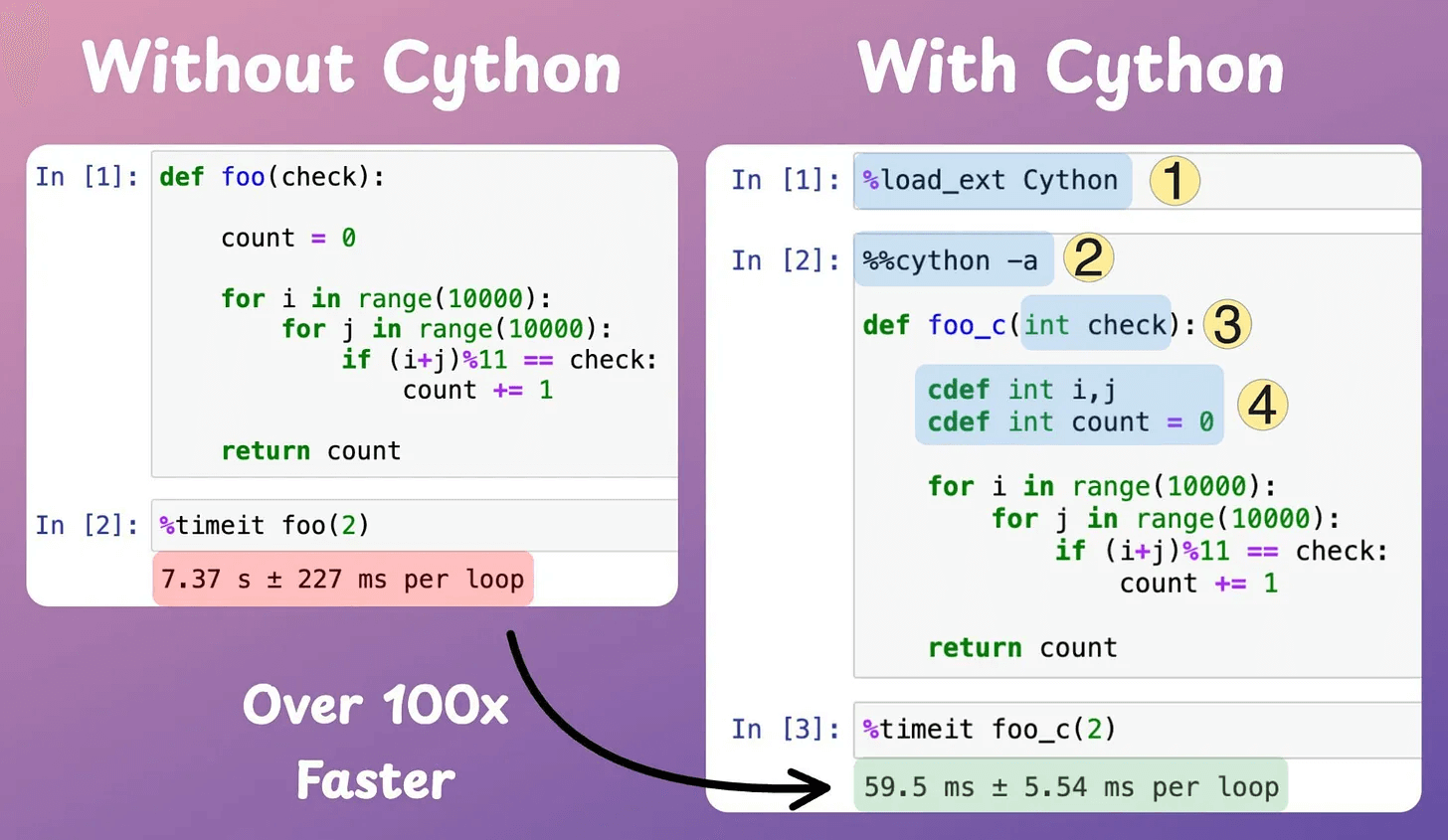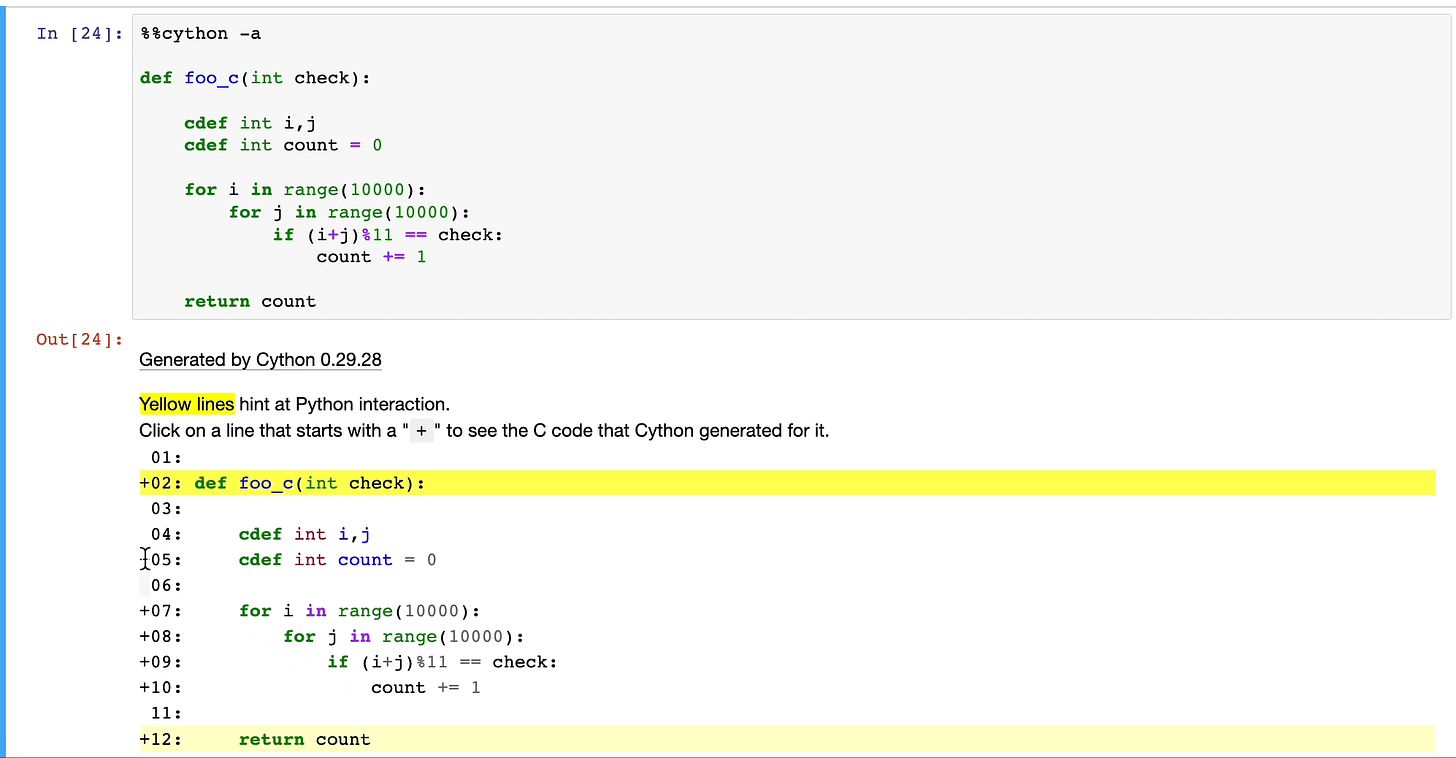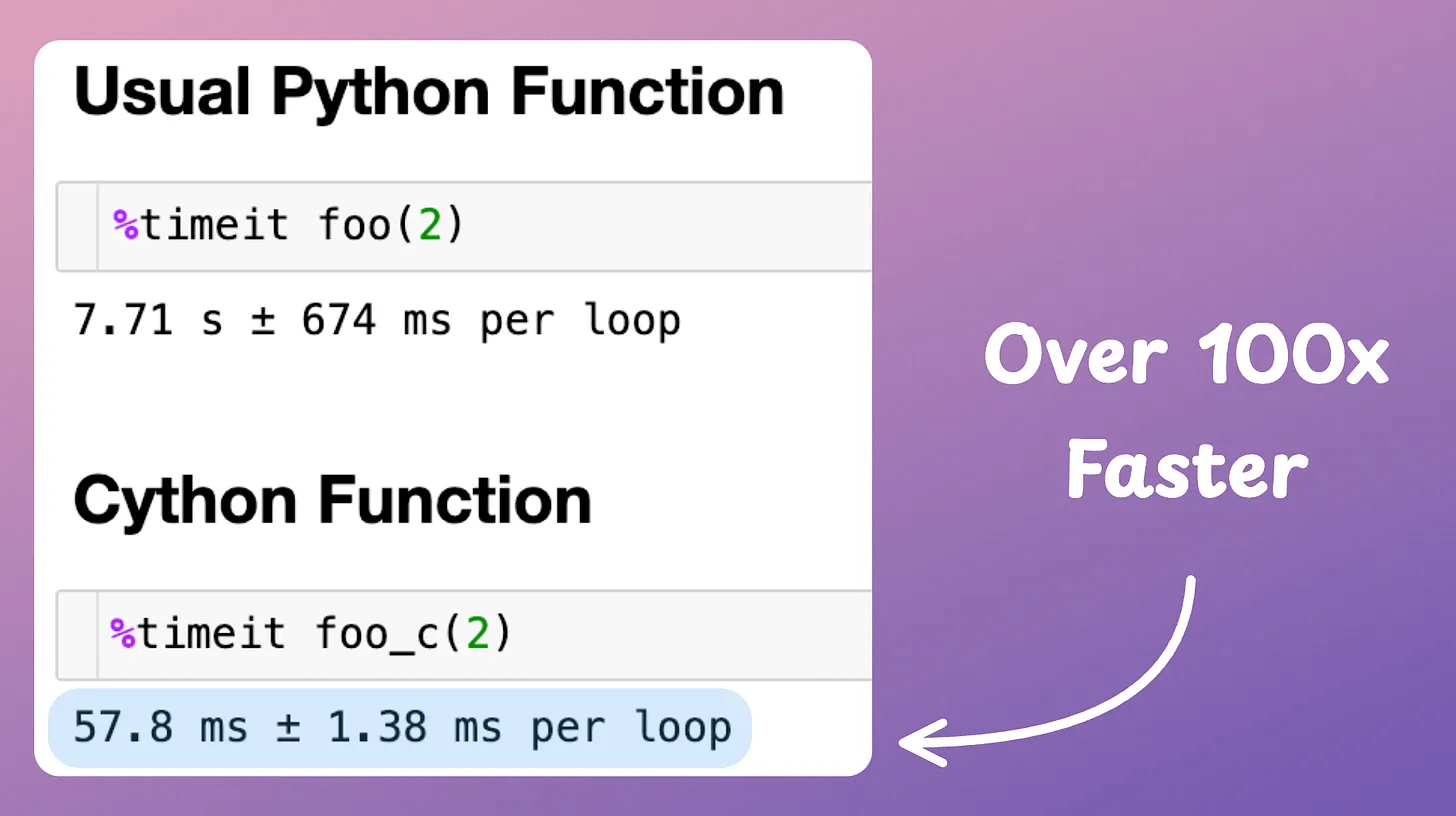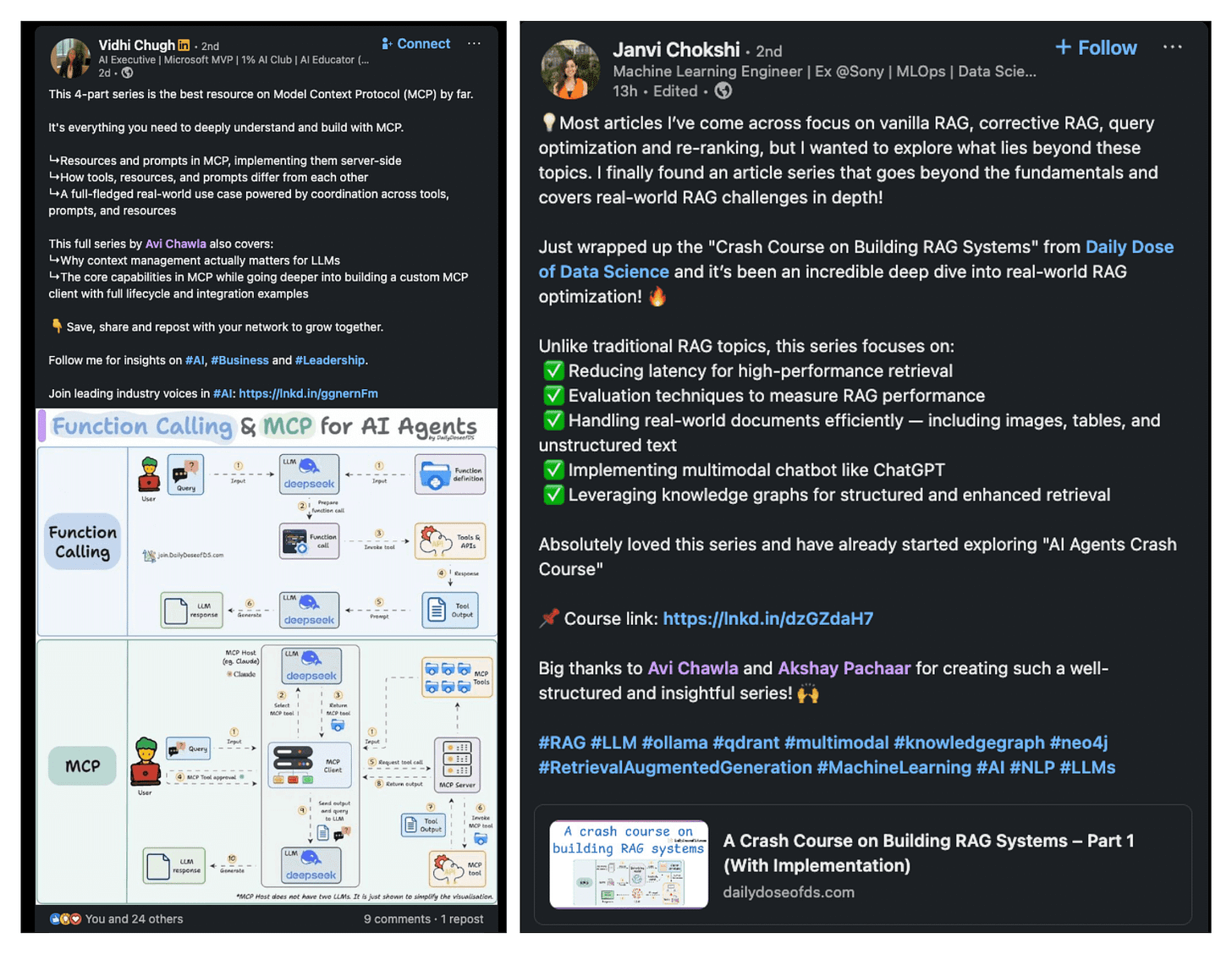Speed-up Native Python Code using Cython
...in just 4 simple steps.
The MiniMax Developer Ambassador Program is open!
MiniMax’s Developer Ambassador Program is giving you an opportunity to join a global group of top ML/LLM developers and get:
FREE MiniMax-M2 Max Coding Plan or MiniMax Agent Pro Plan
Early access to upcoming MiniMax models (LLMs, video, audio)
Potential cash rewards and path to full-time roles at MiniMax
…and much more!
You can fill out this Google form to enroll →
Thanks to MiniMax for partnering today!
Speed up Native Python Code using Cython
Python’s default interpreter (CPython) is slow primarily because of its dynamicity.
For instance, after defining a variable of a specific type, it can be changed to some other type.
But these dynamic manipulations come at the cost of run-time and memory overheads.
Cython addresses this by automatically converting your Python code into C, which is fast and efficient.
This snippet explains the usage:
Load the Cython module: %load_ext Cython
Add the Cython magic command
When using functions, specify the parameter data type
Define every variable using the “cdef” keyword and specify its data type.
Done!
Once you do that, Cython will convert our Python code to C, as depicted below:
This will run at native machine code speed.
The speedup is evident from the image below:
Python code is slow.
But Cython provides over 100x speedup.
👉 Over to you: What are some other limitations of Python’s default interpreter?
Thanks for reading!
P.S. For those wanting to develop “Industry ML” expertise:
At the end of the day, all businesses care about impact. That’s it!
Can you reduce costs?
Drive revenue?
Can you scale ML models?
Predict trends before they happen?
We have discussed several other topics (with implementations) that align with such topics.
Here are some of them:
Learn everything about MCPs in this crash course with 9 parts →
Learn how to build Agentic systems in a crash course with 14 parts.
Learn how to build real-world RAG apps and evaluate and scale them in this crash course.
Learn sophisticated graph architectures and how to train them on graph data.
So many real-world NLP systems rely on pairwise context scoring. Learn scalable approaches here.
Learn how to run large models on small devices using Quantization techniques.
Learn how to generate prediction intervals or sets with strong statistical guarantees for increasing trust using Conformal Predictions.
Learn how to identify causal relationships and answer business questions using causal inference in this crash course.
Learn how to scale and implement ML model training in this practical guide.
Learn techniques to reliably test new models in production.
Learn how to build privacy-first ML systems using Federated Learning.
Learn 6 techniques with implementation to compress ML models.
All these resources will help you cultivate key skills that businesses and companies care about the most.



